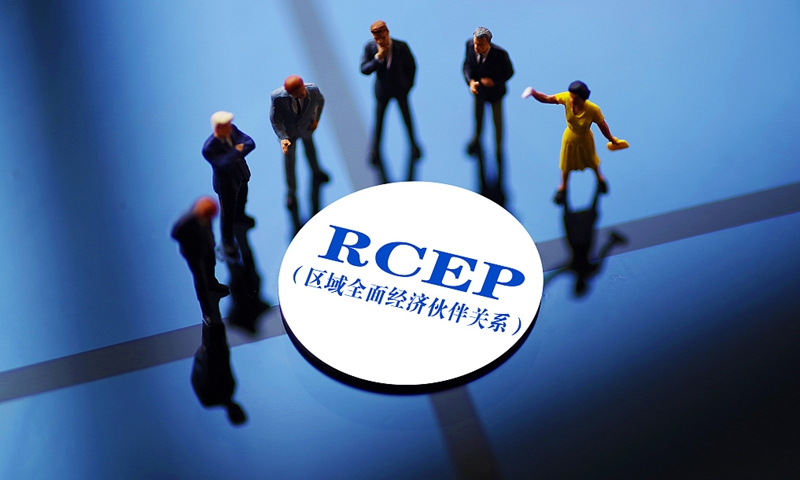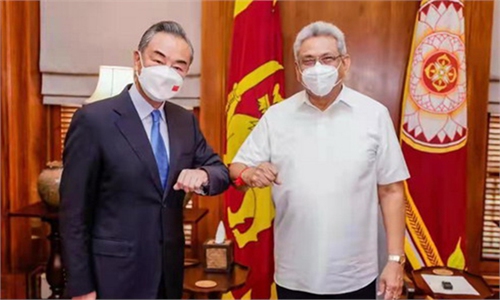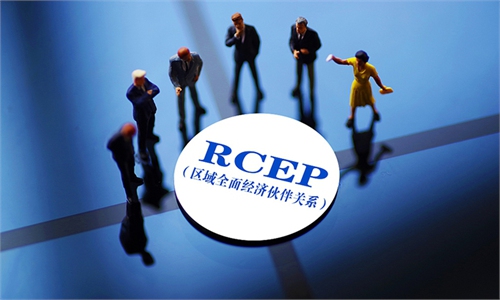
RCEP Photo: VCG
Under the Regional Comprehensive Economic Partnership (RCEP), China and South Korea will make high-level commitments to greater openness, while creating better conditions for the liberalization and facilitation of trade and investment, a spokesperson with the Ministry of Commerce (MOFCOM) said on Thursday.
The RCEP comes in a very timely manner, when issues such as rising inflation triggered by the US' monetary easing, logistics hurdles at many global ports, and the ongoing pandemic ignited by the Omicron variant are creating unprecedented challenges to the global supply chain, experts noted.
They said that the RCEP, including China, South Korea and Japan, will help secure industry chains in the region, which together represent about 20 percent of the world's population, 70 percent of Asia's economy and 20 percent of global GDP.
"Due to the deep integration of the economies of the two countries and the East Asian industry chain, after the RCEP takes effect in South Korea, it can further expand and improve the categories and levels of tax reduction, which can improve the level of China-South Korea free trade relations," Xiang Haoyu, a research fellow at the China Institute of International Studies, told the Global Times on Thursday.
China is South Korea's largest trading partner, and South Korea is one of China's largest trading partners. Last year, bilateral trade grew even amid the COVID-19 epidemic and is expected to hit a record high.
For South Korea, the RCEP will be conducive for pushing bilateral trade and investment into a high-quality development stage, according to the MOFCOM.
Fields that will bear the earliest fruit include electronics, machinery, anti-pandemic items and other manufacturing industries, as well as consumer goods such as food, aquatic products, cosmetics, and cross-border e-commerce.
There is definitely a need for China and South Korea to deepen cooperation on industry supply chains, given that China is the top export destination and a very important market for South Korean products, Park Min Young, the Beijing office chief representative of the Korea International Trade Association, told the Global Times in a recent interview, when commenting on cooperation between China and South Korea under the RCEP.
Manufacturing industries such as cars, especially new-energy vehicles, and other areas involving high-tech innovation like chips should be among the most-needed industries for stronger cooperation between the two sides, Park said.
An important highlight of the RCEP is its role in giving full play to the respective advantages and industrial complementarities in the whole region, MOFCOM spokesperson Shu Jueting noted at the regular press conference on Thursday.
"The RCEP has created a unified market and further deepened relationships between the Asia-Pacific industry and supply chains, including China, Japan and South Korea," Shu said.
The total economic volume of China, Japan and South Korea accounts for 82 percent of the total of the RCEP.
"In particular, the RCEP has achieved tariff reductions and exemptions and investment facilitation arrangements for the first time between China and Japan as well as Japan and South Korea, while making the Asia-Pacific industry chain more dynamic," Xiang said.



